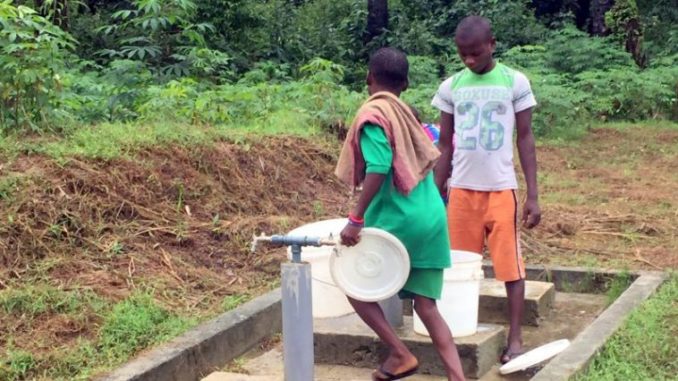
In percentage terms, more Nigerians had access to potable water in 1990 than in 2017, an official has said.
The Minister of Water Resources, Suleiman Adamu, said on Thursday that Nigerians who had access to pipe-borne water dropped from 32 per cent in 1990 to less than 7 per cent this year.
The minister said this is what has led to the prevalence of water-borne diseases and upsurge in open defaecation in the country.
Mr. Adamu, who said Nigeria is lagging behind in terms of adequate water supply said the situation led to a corresponding increase of about 25 per cent in open defecation in 2017.
The minister stated this while presenting a memo to members of the National Economic Council, NEC, comprising the governors and some ministers.
Details of the minister’s presentation was sent to PREMIUM TIMES by the office of the Vice President Yemi Osinbajo.
The NEC is chaired by Mr. Osinbajo, who also chaired the 83rd meeting of the council at the Presidential Villa, Abuja.
Mr. Adamu informed the council that urgent steps need to be taken in the water sector if the country is to overcome the challenges of water supply, sanitation and water governance issues, as well as achieve the 2030 target of the Sustainable Development Goals (SDGs) on water supply and sanitation.
He told the council that an estimated investment of N1.9 trillion is needed in the next 15 years to meet the SDGs by 2030.
The minister outlined a three-phase Action Plan to revitalise the water, sanitation and hygiene sectors to include the following: a 12-month emergency plan beginning from the 2nd quarter of 2018 to April 2019; a five-year recovery programme to last up to 2022; a 13-year revitalisation strategy that will last till 2030.
These plans, he said, will involve the urgent establishment of an institutional and funding framework for Water Supply, Sanitation and Hygiene (WASH) Services, and the engagement of Urban and Rural sectors on an accelerated development path towards 2030.
“The plan also calls for tripling the current investment in water supply, establishment of a WASH fund, fast-tracking the development of the National Policy on Sanitation and the presidential launch of a National Sanitation Campaign to eliminate open defecation.
“Furthermore, the plan is seeking the massive rehabilitation of existing infrastructure in the sector, and sectoral reform towards cost recovery and promotion of private sector participation in the sector, all aimed at taking care of the estimated 182 million population,” Mr. Adamu explained.
The minister also informed NEC that Nigeria requires an average annual investment of N59 billion to attain 78,000 hectares of planned irrigation by 2019, and a total of N1.5 trillion to attain 500,000 hectares of irrigation by 2030.
Meanwhile, the council asked for collaboration between stakeholders in the approach to national water supply.
END

Be the first to comment